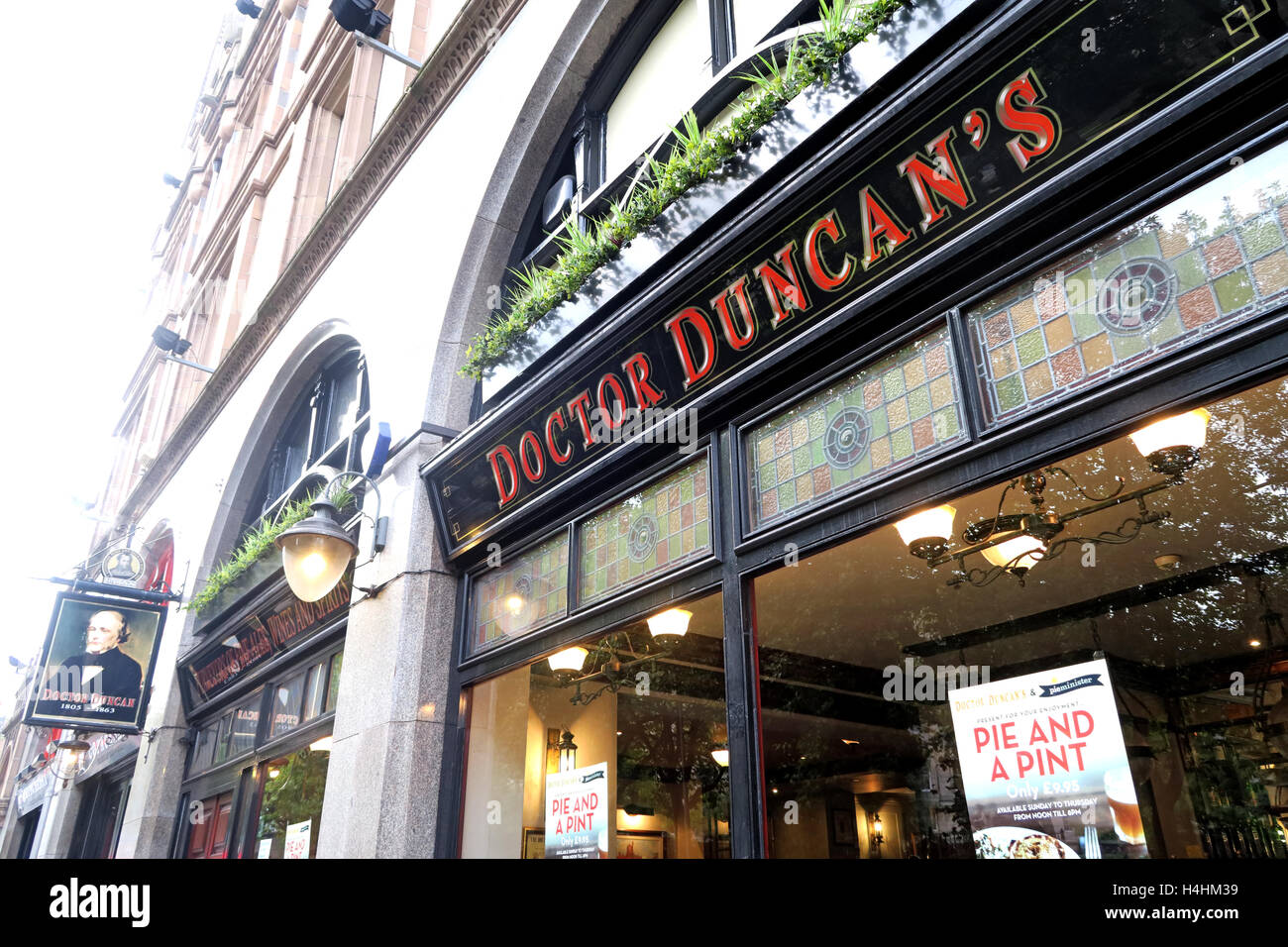Doctor Duncans Pub,St Johns Ln,Liverpool,England,UK

Image details
Contributor:
Tony Smith / Alamy Stock PhotoImage ID:
H4HM39File size:
57.1 MB (2.8 MB Compressed download)Releases:
Model - no | Property - noDo I need a release?Dimensions:
5472 x 3648 px | 46.3 x 30.9 cm | 18.2 x 12.2 inches | 300dpiDate taken:
14 October 2016Location:
St Johns Lane,City Centre,Liverpool,L1 1HFMore information:
William Henry Duncan (27 January 1805 – 23 May 1863), also known as Doctor Duncan, was an English doctor who worked in Liverpool as its first Medical Officer of Health. Biography Duncan was born in Liverpool to Scottish parents. He was the nephew of James Currie, an earlier influential Liverpool physician. He was also the nephew of Henry Duncan of Ruthwell and received his early education in Scotland, under Henry Duncan's protection. William Henry Duncan qualified as a medical doctor in Edinburgh, returning to Liverpool to work in general practice. He was appointed Medical Officer of Health on 1 January 1847. Duncan was one of the celebrated trio of pioneering officers appointed under a private act (the Liverpool Sanatory Act 1846) by the Borough's Health of the Town Committee; the others being James Newlands, Borough Engineer, and Thomas Fresh, Inspector of Nuisances (though it was recently discovered that Fresh had already been in a non-statutory version of the post for several years before this). A pub in Liverpool called Doctor Duncan's is named in his honour. One of the buildings of the Faculty of Medicine at the University of Liverpool is named after William Henry Duncan, The William Henry Duncan Building, whose entrance is off West Derby Street. The building houses the Institute of Ageing and Chronic Disease (link), research groups from the Institute of Translational Medicine and the Liverpool Biobank. Part funded by the EDRF the building also houses the Liverpool BioInnovation Hub